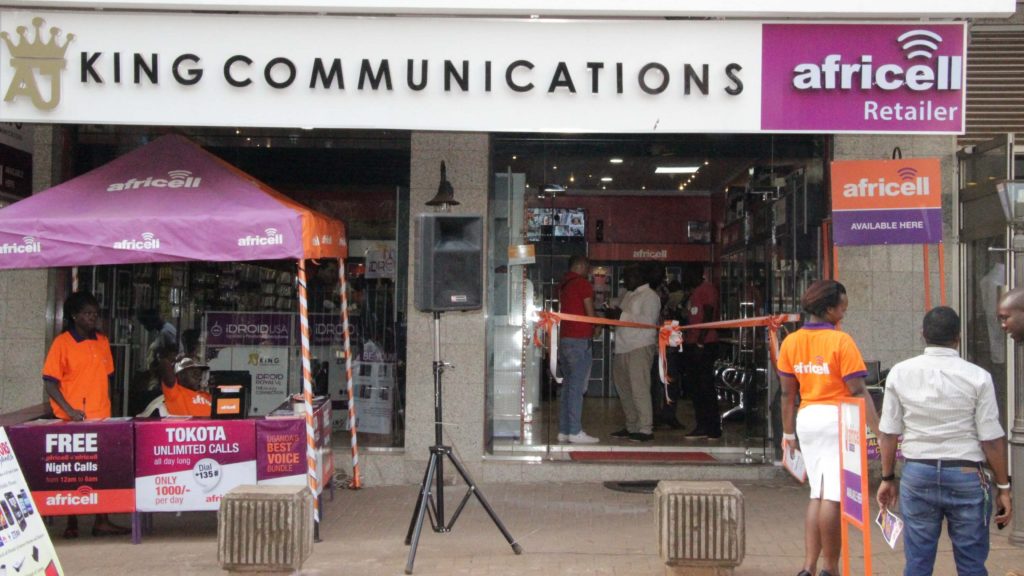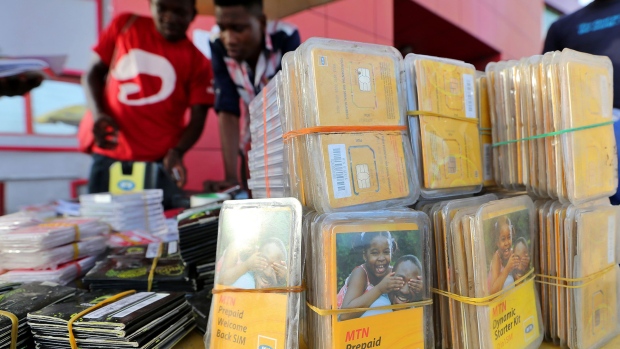On September 7, Africell announced its decision to leave Uganda after operating in the East African country for seven years. The decision saw the U.S-owned company become the latest network operator to throw in the towel and exit a market dominated by two pan-African telecom behemoths.
A statement issued by Africell blames tough competition from the local units of MTN and Bharti Airtel, both of which account for more than 90% of the market share. The remaining 10% is split between three or four other nationwide operators including Africell and Uganda Telecom.
South Africa-based MTN Group, Africa’s largest telecoms operator, entered Uganda in 1998 and has since established dominance in the market; largely due to first-mover advantage and significant investments the business has made in Uganda.
Airtel, which launched 12 years later, has mainly relied on acquisitions to scale its market position. After entering Uganda through the purchase of Zain’s operations, the company, in 2013, fully acquired Warid Telecom for $100 million; the first-ever in-country acquisition in the sector that increased Airtel’s subscriber base by over 50%.
With operations in the Democratic Republic of Congo (DRC), The Gambia, and Sierra Leone, Africell launched in Uganda in 2014 after buying the local operations of French telecom giant, Orange.
At the time of the acquisition, 8 operators were serving a population of around 36 million Ugandan residents, with total subscriptions estimated at less than 20 million. It appeared Africell was entering an untapped market and the company bet on data services to eat into the market share of incumbents.
“When entering new markets, Africell’s objective is always to introduce competition in a manner that benefits local consumers and communities,” Sam Williams, the firm’s communications director told TechCabal. “In Uganda, our goal was to provide an appealing alternative to the incumbent duopoly, by focusing (among other things) on fast and reliable data services.”
Africell is reputed for its affordable internet service packages and relative network stability in Uganda, which saw it gain the trust of a substantial number of subscribers. But like its predecessors, the company struggled to make a notable impact in a mobile market reputedly hostile to new entrants.
The perils of playing third fiddle
The economics of being number three on the telecoms players list in a relatively small and saturated market makes little commercial sense for Africell or any potential entrant.
Uganda has over 24 million mobile subscribers with MTN controlling 50% of the market while Airtel Uganda accounts for 43%. This means newcomers are forced to share in a limited pool of subscribers left over by the leaders.
For instance, other telecom players in South Africa apart from MTN and Vodacom have struggled to make consistent profits. MTN also decided against reapplying for a license in Ethiopia, to avoid trailing behind Ethio Telecom and Safaricom.
According to Williams, Africell “built a strong position” in Ugandan urban centers already dominated by its competitors. However, a wider rollout to underserved areas would have required a significant longer-term investment that would have been difficult to recover given the size of Africell’s market share.
“In a market where two incumbents control that much market share already, it’s definitely going to be very challenging for other operators to break in,” Ayobami Omole, a Lagos-based telecom analyst at Tellimer, told TechCabal.
“Telecommunications is capital intensive. Masts, towers, fibre, and data centres do not come cheap. Without a significant number of subscribers, it’s going to be hard to recoup returns on investment.”

Orange invested significantly in new technologies before deciding to cut short its losses. Since it entered Uganda via a shareholding agreement with HiTS Telecom in 2009, the French firm was only able to get around 700,000 subscribers – roughly 3.3% of the market share at the time.
Africell claims to have grown the inherited number of subscribers to about 2.3 million within seven years, becoming the country’s third-largest player, according to data available on the firm’s website.
However, data from Omdia shows that figure is closer to 1.6 million, some way off the pace compared to almost 15 million subscribers for MTN and 12.8 million for Airtel. It’s also reportedly been losing its share of the market slowly, which fell from about 7% at the end of 2019 to 5% at the end of June 2021.
“We decided to end operations following a careful analysis of how the Uganda business fits into our overall Africell Group strategy,” Williams said. “It’s a recognition of the fact that – in our view – investment in our other markets is a more sustainable route to our goal of advancing the African telecoms sector.”
A flurry of exits
Africell hasn’t been the only victim of MTN and Airtel Uganda’s dominance. Before Africell’s decision to pack, at least four other players have either exited or been bought out by bigger players after failing to break into the inner circle of the market.
In addition to the acquisition of Warid, which at the time was the third-largest player and had offered the biggest threat to the MTN-Airtel duopoly, K2 Telecom’s operation was absorbed by Airtel in 2018.
Smart Telecom exited the market in August of this year; and Vodafone, with all its solid financial backing, could only challenge for three years before it eventually quit.
With Africell’s exit, only three major network providers currently operate in Uganda, a landlocked country with a population of over 44 million people.
What next for Africell?
While it struggled to grow its market share, Africell also grappled with high operating costs and debt burden, part of which was inherited from Orange. In 2019, the company’s losses reportedly rose to over Ksh1.5 trillion ($400 million), with the bulk of its debt due to cell tower operators.
Part of the conditions set by the sector’s regulator, the Uganda Communication Commission (UCC), before Africell formally winds up operations is the payments of its creditors. Without giving out specific details, Williams disclosed that discussions are currently ongoing between the relevant parties.
In 2019, Africell signed a financing agreement worth $100 million with the Overseas Private Investment Corporation, a U.S. government funding agency. The investment is expected to be deployed across Africell’s remaining markets while it’s also planning to launch operations in Angola by the end of this year.
Africell’s exit from Uganda will come as good news to the likes of MTN, which is gearing up to sell 20% of its shares to the public via an IPO, in line with a government directive issued last year.
Current Africell subscribers in the country must close their accounts and switch to alternative mobile providers by October 7, with the company saying it will provide support and guidance during the migration process.
In the coming weeks, Africell will return mobile sites to third-party owners while network technology equipment will be transferred to other units within the Africell Group. The operator’s mobile frequency and spectrum holdings will be returned to the UCC and it claims to have notified GSMA of the termination of roaming partner agreements.
If you enjoyed reading this article, please share it in your WhatsApp groups and Telegram channels.





















